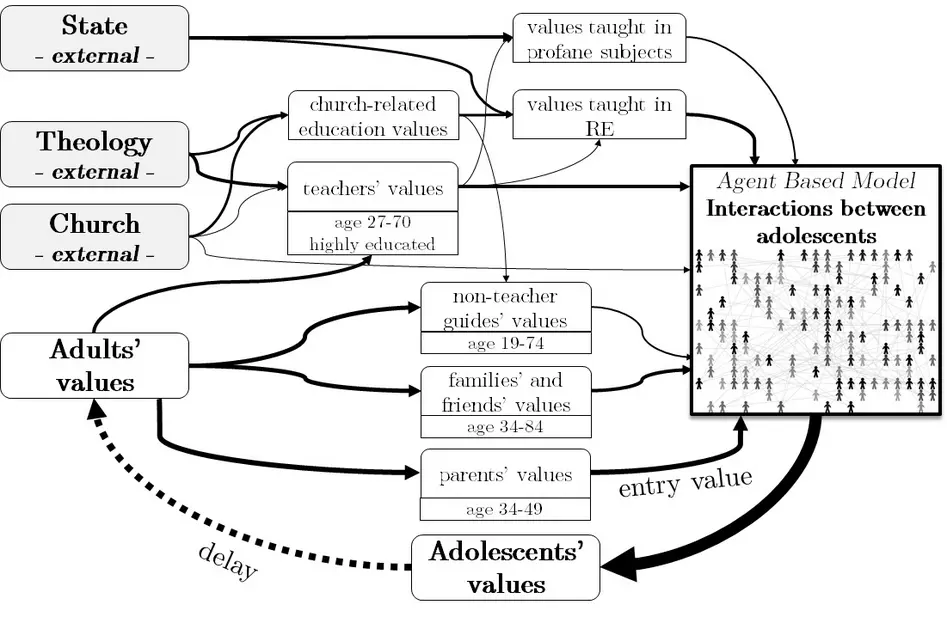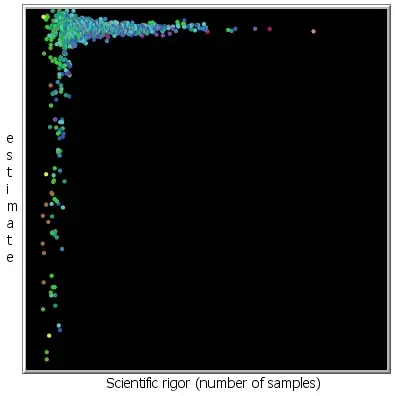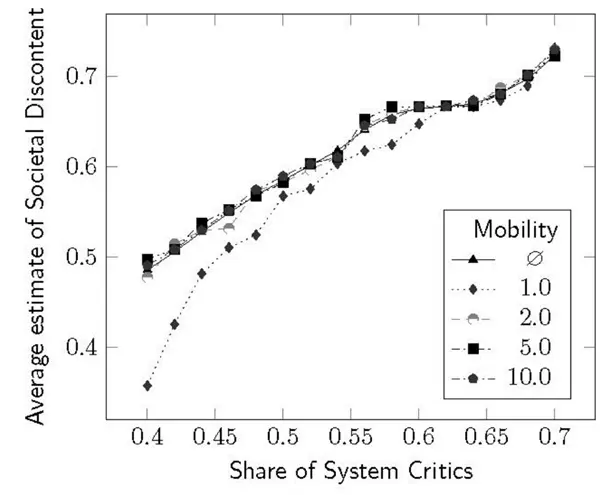Political Epistemology: Democracy and the Problem of Strategic Manipulation
Principal Investigator: Dr Simon Scheller
Academic Staff: Daniel Mayerhoffer

Democracy's epistemic virtue and the 'wisdom of crowds' constitute central themes in democratic theory. However, recent political developments challenge the widely accepted proposition that democratic institutions facilitate epistemically superior collective decisions. This mismatch alludes to 'Democracy's epistemic crisis' and invites the question: (How) can epistemic theories of democracy stand up to these novel challenges?
The project builds on recent contributions in social epistemology but lifts the assumption of individual honesty. This allows focussing on the role of strategic manipulation in collective opinion formation and decision-making, which stands at the heart of these troubling phenomena. Moreover, the project reassesses and reaffirms democracy's epistemic virtue in light of these newly emerging challenges.
Methodology
The project provides a series of Agent-Based Models (ABMs) to simulate group decisions under the influence of strategic manipulation. ABMs allow capturing crucial dynamic aspects of social knowledge formation and enable incorporating and analysing different manipulation strategies. Furthermore, the models address specific sub-issues, such as the impact of communication structures, (lack of) trust in epistemic authorities as well as conflicting interests.
Besides the formal modelling, political epistemology's core issues are conceptually and philosophically analysed: How can different theories of epistemic democracy cope with manipulation and misinformed citizens? Are there implications for democratic legitimacy? Furthermore, what countermeasures are normatively justifiable for democratic actors?
Moritz A. Schulz and Simon Scheller
A particularly puzzling feature of the political discourse surrounding the surge of populism across Western democracies has been the role of apparent assertions of empirical beliefs in what has come to be known as ‘post-truth’ discourse. How could a question such as whether the sun was shining during a widely televised event become a divisive matter of deeply personal commitment? Scholars have tried to account for this phenomenon in a number of ways. In this paper, we group these approaches into four categories: analyses in terms of lying, bullshitting, subjective epistemic constraints, and alternative epistemic norms. We show that each kind of analysis faces problems that render it ill-equipped to account for what is most distinctive about post-truth discourse.
Recently, however, a few scholars have floated an alternative avenue of inquiry: They have drawn our attention to how apparent assertions of facts may be entangled with social identities. Our chief aim in this paper, then, is to draw out four different ways in which such a connection between post-truth discourse and social identity might obtain. All four share important explanatory benefits over conventional analyses. However, they likewise show that the general proposal of linking the two phenomena stands in need of clarification. Deciding between different identity-based analyses of post-truth utterances matters not only for a proper theoretical understanding of them, but has normative and practical implications too: On what grounds exactly is it that we should criticise post-truth speakers? What, if anything, is it that they do wrong? And what avenues for interventions does our best understanding of what it is that they are doing suggest?
Johannes Marx and Daniel Mayerhoffer
Since the founding of their disciplines, social scientists have been debating the change of individual identities and values in a societal and political context. We aim to contribute to that debate by evaluating the impact of state and church on the values that individual members of society hold over multiple generations in a computational model.
This model generalises Mayerhoffer (2018), who studies the impact of church, state, and civil society on German adolescents‘ attitudes towards queerness, in three ways: Firstly, it applies to values in general instead of the narrow question of queerphobia. Secondly, it broadens the scope to allow insights on countries other than Germany. Thirdly, our model can capture inter-generational effects and thus treats values in society not as externally given constant but as subject to change by the model dynamics.
We pursue a system dynamics approach to capture overall interactions between factors but specifically focus on value formation during adolescence(between 15th and 25th birthday) through an agent-based model. The agent- based model provides a more detailed understanding of values as emergent properties of peer interactions under external influences whereas the system dynamics model allows for efficient tracking of macro-features over longer time-span.
Simulation results demonstrate the resilience of a healthy civil society against external pressures by state or church and highlight that value changes typically take a long time because they happen gradually over more than one generation (Jennings and Stoker, 2004; Sun and Wang, 2010; Manfredo et al., 2015). The simulation results allow for comparison of patterns and mechanisms of value change to those of short-term belief change, investigated, e.g. by Klein and Marx (2018); Klein et al. (2020).

Daniel Mayerhoffer and Simon Scheller
We investigate the mechanisms underneath the currently present fundamental disbelief of some people in what others perceive as irrefutable scientific facts or political reality. For any given topic, only few experts that frequently acquire first-hand information. Everyone else either trusts their gut feeling or communicates with experts to work with their information.
Our parsimonious agent-based model assumes a unimodal, right-skewed distribution of expertise and (mild) homophily regarding expertise in the formation of social ties. These weak assumptions suffice for a general agreement on a scientific view with few non-experts diverging from this agreement. The latter become conspiracy theorists merely because they have an initial gut feeling sceptic of the scientific fact and do not listen to experts that could disprove this intuition.
Hence, fundamental disagreement and the formation of filter bubbles seem possible without a strong innate individual tendency for segregation. Moreover, preliminary analyses suggest communication as a way of overcoming this fundamental disagreement and re-integrate conspiracy theorists into the societal consensus. However, such communication efforts come at the cost of an overall less firm belief in scientific facts.
Dominik Klein, Johannes Marx and Simon Scheller
This paper analyses how rational agents’ actions feed back on their beliefs. In two agent-based computer simulations, we study complex social interactions in which agents that follow expected utility maximising strategies. In any situations of iterated interaction, social feedback loops, or an intricate connection between actions and belief formation, such short-term expected utility maximisation deteriorates the agent’s quality of beliefs in the medium and long run. We take these results as a starting point to discuss the complex relationship between rational action couched in terms of maximising utility and the emergence of informational inequalities.
The study finds that various social settings require a concept of rationality that is broader than current standard understandings as expected utility maximisation: A substantial account of rationality should consider the need for optimal action choice, and the acquisition of new information. In this broadened perspective, the quality of fture beliefs should be considered as a relevant consequence of rational actions.
Click here to access the full-text of the paper.
Simon Scheller
This paper examines the claim that democratic decision making is epistemically valuable. Focussing on communication and voting, circumstances are identified under which groups are able to reliably identify the ‘correct alternative.’ Employing formal models from social epistemology, group performance under varying conditions in a simple epistemic task is scrutinized. Simulation results show that larger majority requirements can favour the veto power of closed-minded individuals, but can also increase precision in well-functioning groups. Reasonable scepticism against other people's opinions can provide a useful impediment to overly quick convergence onto a false consensus when independent information acquisition is possible.
Klick here to access the full-text of the paper.

